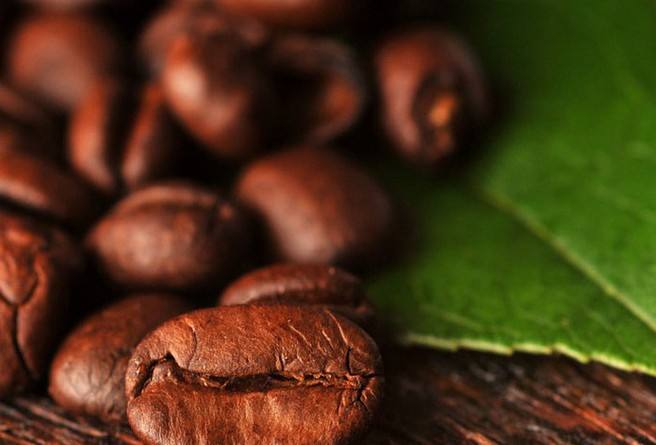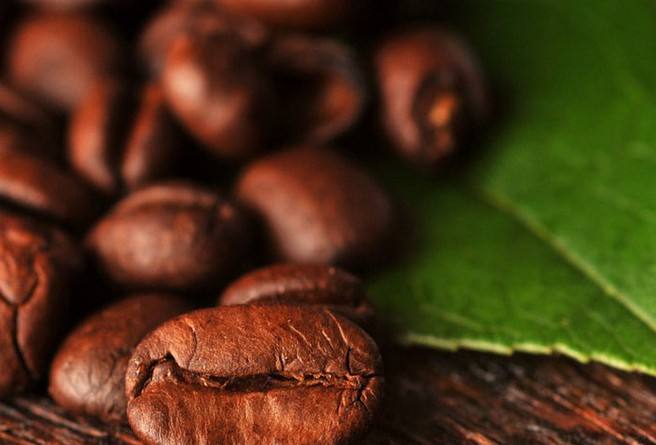History of Tanzanian Coffee Origin, Characteristics of Tanzanian Coffee
Follow the caf é (Wechat official account vdailycom) and found that Beautiful Cafe opened a small shop of its own.
Coffee exports from Tanzania (Tanzania) play an important role in the whole national economy.
In the past, the coffee industry in Tanzania has been dominated by manor cultivation, but now more than 85% are grown by small farmers. Many small farmers form cooperative organizations, the most important of which is the Kilimanjaro Cooperative Alliance (KilimanjaroCooperativeUnion, referred to as KNCU). Tanzanian coffee is sold by the Tanzanian Coffee Management Council (TanzanianCoffeeMarketingBoard, TCMB) to private exporters by auction. In the 1980s, most coffee sales in Tanzania shifted from auctions to being sold directly to the Tanzania Coffee Management Committee.

That has changed and the coffee industry is being reformed to allow individuals or groups to buy coffee in the future, when coffee will be graded in different ways in order to attract buyers from Germany, Finland, the Netherlands, Belgium and Japan.
The African series beans have always accounted for the proportion of rose coffee sales, and its wild regional flavor, thick taste and distinctive features make you want to ignore it.
Coffee is called Kahawa kahawa in Tanzania, although it is not as famous as Kenya in the coffee industry, but its annual output is almost the same as in Kenya. The main way to sell coffee is through competitive bidding and direct sales. The earliest Arabica seeds were introduced from R é union French island of Reunion and grown in Bayamoyo and Mogoro. In 1893, beans planted on the slopes of Kilimanjaro became successful coffee beans. Other varieties of Arabica trees were also introduced from neighboring Burundi in the western part of Tanzania in the 1950s and are now mainly planted in high altitude areas. However, local wild coffee species continue to appear. The most recent discovery is in Coffea kihansiensis in the Udzungwa Mountains, whether Arabica, which was washed after harvest in July-December, or Robusta, where native species were sunburned after harvest from April to November. The main producing areas are: Mara, Kilimanjaro, Rovuma, Mbeya, Kighoma, Arusha, Manyala, Bukoba and Kagera. But Arabica beans account for nearly 75% of Tanzania's annual output, and Tanzania produces 50,000 tons of coffee a year.
Agriculture is an industry that Tanzania depends on. About 90% of the country's manpower is engaged in agricultural production, and agriculture accounts for 85% of exports. More than 90% of the main crops, including coffee, are grown by small farmers, cotton, tobacco, cashews, tea and sisal. Until today, it is estimated that about 4.5 million of the population of 450000 small farmers, or 11 per cent of the country's population, depend on coffee cultivation for a living, producing nearly 90 per cent of the country's raw beans, and the remaining 10 per cent are supplied by cooperatives and larger estates.
Coffee producing areas in Tanzania:
Coffee bean-shaped berry coffee in Tanzania produces a lot of coffee and is said to be more fragrant than ordinary coffee. Generally speaking, coffee beans in Tanzania have extraordinary quality. For example, the fine Tanzanian AA coffee (ChaggaAA), produced in the Moshi district near Mount Kilimanjaro, is famous for its full-grained and fragrant quality.
The characteristics of Tanzanian coffee:
Flavor: full-bodied and refreshing, with lower acidity than Kenyan coffee, pure flavor and aroma
Coffee beans in Tanzania are of extraordinary quality. They are produced in the Mohi district near Mount Kilimanjaro. The mountains with a height of 3,000 to 6,000 feet are the most suitable areas for growing coffee. The fertile volcanic ash gives the coffee here a strong texture and soft acidity. It exudes delicate aromas and contains aromas of wine and fruit, making people taste endless aftertaste. After drinking Tanzanian coffee, I always feel a soft and mellow earthy smell at the corners of my mouth. Coffee gourmets often use words such as "wild" or "wild" to describe it. It can be said that pure Tanzanian coffee is "the most African coffee".
Important Notice :
前街咖啡 FrontStreet Coffee has moved to new addredd:
FrontStreet Coffee Address: 315,Donghua East Road,GuangZhou
Tel:020 38364473
- Prev

Tanzanian Coffee Bean Profile, Tanzanian Coffee Flavor
Pay attention to coffee reviews (Weixin Official Accounts vdailycom ) and find that a beautiful cafe opens its own small shop. Tanzania's coffee exports play an important role in the entire national economy. In the past, Tanzania's coffee industry has been dominated by plantation cultivation, but now more than 85% is cultivated by smallholders. Many small farmers form cooperatives, the most important of which
- Next

How do you make cat shit coffee, cat shit coffee taste
Pay attention to coffee reviews (Weixin Official Accounts vdailycom ) and find a beautiful cafe to open its own small shop cat excrement coffee, produced in Indonesia. In the early 18th century, the Dutch established coffee plantations in the Indonesian colonies of Sumatra and Java, and prohibited the locals from picking and eating their own coffee fruits. Locals living in Indonesia also accidentally discovered musk
Related
- Detailed explanation of Jadeite planting Land in Panamanian Jadeite Manor introduction to the grading system of Jadeite competitive bidding, Red bid, Green bid and Rose Summer
- Story of Coffee planting in Brenka region of Costa Rica Stonehenge Manor anaerobic heavy honey treatment of flavor mouth
- What's on the barrel of Blue Mountain Coffee beans?
- Can American coffee also pull flowers? How to use hot American style to pull out a good-looking pattern?
- Can you make a cold extract with coffee beans? What is the right proportion for cold-extracted coffee formula?
- Indonesian PWN Gold Mandrine Coffee Origin Features Flavor How to Chong? Mandolin coffee is American.
- A brief introduction to the flavor characteristics of Brazilian yellow bourbon coffee beans
- What is the effect of different water quality on the flavor of cold-extracted coffee? What kind of water is best for brewing coffee?
- Why do you think of Rose Summer whenever you mention Panamanian coffee?
- Introduction to the characteristics of authentic blue mountain coffee bean producing areas? What is the CIB Coffee Authority in Jamaica?

